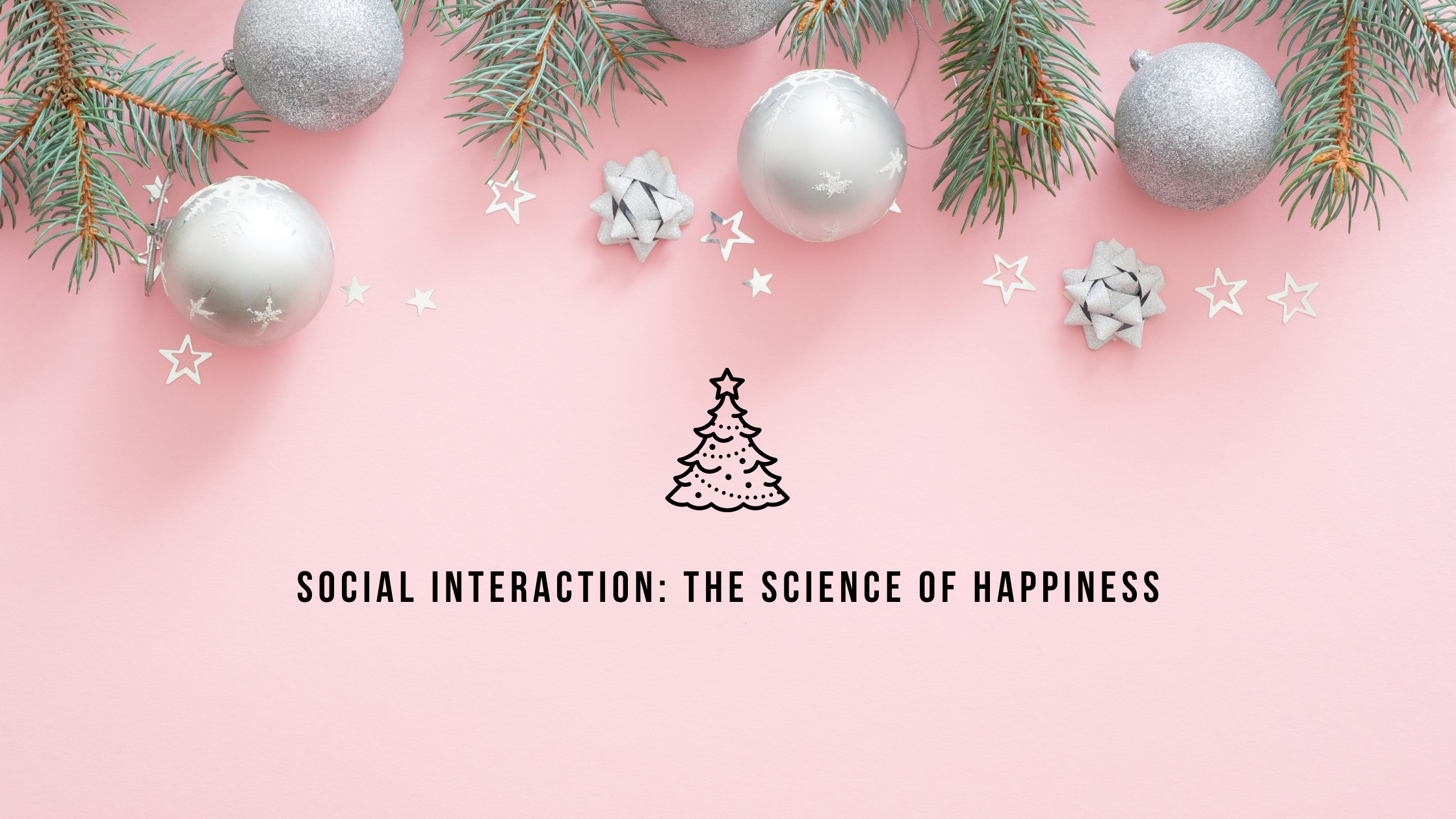Social Interaction: The Science of Happiness
 16 Dec, 2021
16 Dec, 2021
For many the Christmas season is a good time for families and friends to reconnect during the festive activities. However, with Covid-19 still prevailing this may be much harder than normal to do. The past two years have been incredibly hard for so many individuals and families across the globe especially in terms of maintaining strong connections with loved ones. Many have found isolation to be extremely challenging as it has led many to feel lonely, disheartened, and depressed. According to a recent HSE report on social prescribing it explained that isolation can have negative consequences for older age groups. In particular those with chronic health problems, people with mental health difficulties and psychosocial needs, carers, single parents, migrant and immigrant and minority ethnic groups are at risk.
Research from this report also highlighted that the impact of positive social interaction cannot be underestimated. It has been repeatedly shown that the health benefits of connecting with others can help relieve harmful levels of stress, which can adversely affect coronary arteries, gut function, insulin regulation, and the immune system.
A range of activities have been identified as qualifiers of social supports which include offering others help, advice or to express affection to another. According to research conducted by Harvard Health, social connections like these not only give us pleasure, but they also influence our long-term health in ways every bit as powerful as adequate sleep, a good diet, and not smoking. Dozens of studies have shown that people who have social support from family, friends, and their community are happier, have fewer health problems, and live longer. The significance of this research is huge, and it remains clear that whether in person or online, social interaction should be a priority for many this Christmas.
This is furthermore iterated in a RCSI webinar where Kieran O’Boyle who is the Director at RCSI Centre for Positive Psychology and Health is interviewed. Dr Kieran O’Boyle takes us through the pillars of happiness and how it can be achieved.
“It is important to feel fulfilment through engaging in activities which are interesting and absorbing. Along with this, relationships are incredibly important as they provide us with experiences of attachment, love, support and give us a sense of being valued. Having meaning and purpose in our daily lives is also crucial to happiness. This involves pursuing highly valued goals. Accomplishment is another important element of happiness as it gives us the feeling of mastery and achievement. Finally, having meaning and purpose in our daily lives is imperative. This involves pursuing highly valued goals and often serving something much bigger than ourselves”.
References:
Harvard Health Publishing, 2021, The Health Benefits of Strong Relationships: LINK
HSE, 2021, Social Prescribing: LINK
RCSI, 2021, My Health: Positive Health – The Science of Happiness: LINK

How Healthy are You?
Get a picture of your current health status and habits by taking our short Health and Wellbeing Check!